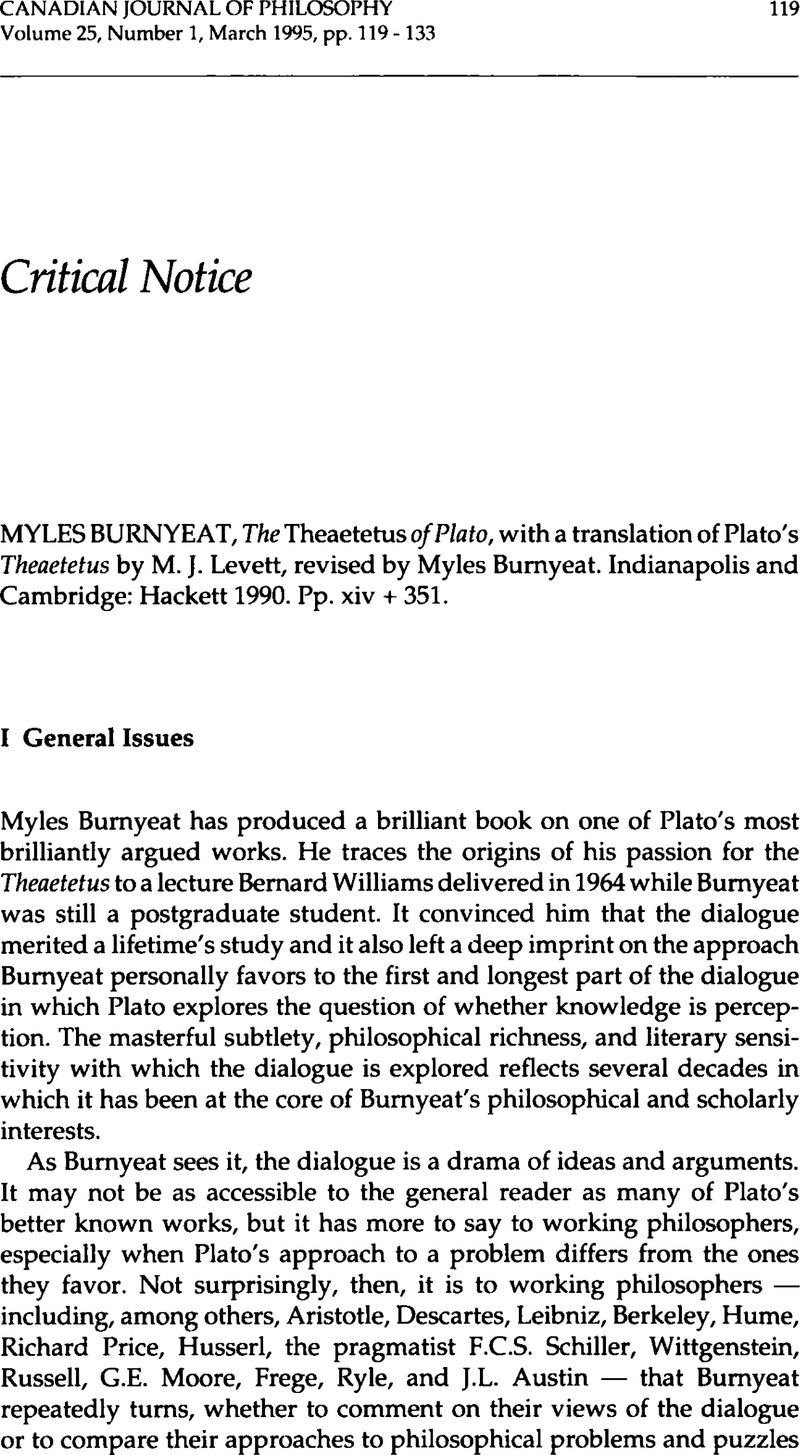No CrossRef data available.
Article contents
Myles Burnyeat, The Theaetetus of Plato, with a translation of Plato's Theaetetus by M. J. Levett, revised by Myles Burnyeat. Indianapolis and Cambridge: Hackett 1990. Pp. xiv + 351.
Published online by Cambridge University Press: 01 January 2020
Abstract

- Type
- Critical Notice
- Information
- Copyright
- Copyright © The Authors 1995
References
1 Since then, the publisher has reissued the Levett translation as revised by Burnyeat with a brief, but characteristically insightful, introduction by Williams.
2 As Burnyeat remarks about the passage which introduces the image of Socrates as an intellectual midwife: ‘it should be read with feeling as well as thought’ (6). Later Burnyeat notes more generally that ‘a great work of philosophy demands a response which is more than merely intellectual’ (39). He makes it amply clear, however, that this outlook does not sanction the ignoring of argument. As he later observes: ‘the business of philosophy is argument, not preference’ (54).
3 It is summarized in an extended note in ‘Idealism and Greek Philosophy: What Descartes Saw and Berkeley Missed,’ Philosophical Review 91 (1982) 6-7, and informs his analyses in other articles.
4 Cornford, Francis M. Plato's Theory of Knowledge (Indianapolis: Liberal Arts Press 1957), 49Google Scholar
5 Protagoras's doctrine has been dealt with in the preceding sentence.
6 McDowell, John Plato: Theaetetus (Oxford: Clarendon Press 1973), 196–7CrossRefGoogle Scholar. Here McDowell, however, only characterizes such a principles as ‘plausible.’
7 Later Burnyeat describes how Wittgenstein's (as well as Ryle's) semantic approach to Part III of the dialogue — and of the dream in particular — has been historically influential, indeed ‘spellbinding,’ in inducing commentators to approach Plato's text in this light rather than the epistemological approach he argues that Plato follows (150-1).




